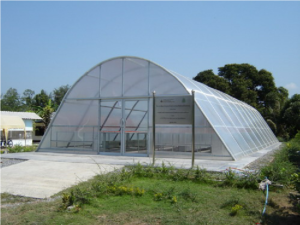
Cassava is a vital crop in Nigeria, contributing significantly to food security and livelihoods. However, post-harvest losses due to spoilage and inefficient processing methods pose a significant challenge. Integrating renewable energy solutions into cassava processing offers a transformative approach, reducing losses, creating jobs, and boosting income for processors and communities.
The Challenge: Post-Harvest Losses and Inefficient Processing
Traditional cassava processing methods in Nigeria often rely on manual labor and energy-intensive techniques, leading to significant post-harvest losses. Cassava roots deteriorate rapidly after harvest, and delays in processing can result in substantial waste. Inefficient processing methods, often relying on fossil fuels, contribute to high energy costs and environmental pollution.
The Solution: Renewable Energy Integration
Investing in renewable energy solutions presents a sustainable and efficient alternative for cassava processors in Nigeria. Solar, wind, and biogas energy can power various stages of cassava processing, from washing and peeling to drying and milling.
Benefits of Renewable Energy for Cassava Processors:
Reduced Post-Harvest Losses: Renewable energy-powered processing equipment enables faster and more efficient processing, minimizing delays and reducing spoilage. Solar dryers, for instance, can quickly dry cassava chips, preventing fermentation and mold growth.
Lower Energy Costs: Transitioning to renewable energy sources significantly reduces reliance on expensive and often unreliable grid electricity or fossil fuel generators. This leads to substantial cost savings for cassava processors, increasing their profitability.
Environmental Sustainability: Renewable energy is clean and environmentally friendly, reducing greenhouse gas emissions and contributing to a sustainable cassava processing industry.
Job Creation: The adoption of renewable energy technologies in cassava processing creates new job opportunities in equipment installation, maintenance, and operation. This can particularly benefit rural communities where cassava processing is prevalent.
Increased Income: By reducing post-harvest losses and energy costs, cassava processors can increase their income and improve their livelihoods. This can also lead to increased investment in the sector, further driving growth and development.
Examples of Renewable Energy Applications in Cassava Processing:
Solar-powered dryers: These can be used to dry cassava chips, flour, and other products, preserving them for longer periods and preventing spoilage.
Biogas digesters: These can convert cassava waste into biogas, which can be used to power processing equipment or generate electricity.
Solar-powered milling machines: These can be used to grind cassava into flour, reducing reliance on manual labor and increasing efficiency.
Challenges and Opportunities:
While the benefits of renewable energy in cassava processing are evident, some challenges need to be addressed. These include the initial investment costs of renewable energy equipment, the need for technical expertise, and access to financing.
However, various opportunities exist to overcome these challenges. Government support through subsidies, grants, and training programs can help cassava processors adopt renewable energy technologies. Collaboration between research institutions, private sector companies, and local communities can also drive innovation and knowledge sharing.
Conclusion:
Investing in renewable energy for cassava processing in Nigeria offers a win-win solution. It reduces post-harvest losses, lowers energy costs, promotes environmental sustainability, creates jobs, and boosts income for processors. By embracing renewable energy, Nigeria can unlock the full potential of its cassava industry, ensuring food security, economic growth, and sustainable development.



